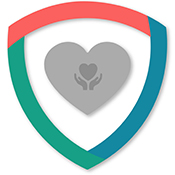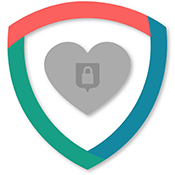 Most people want to be independent and do not want to be a burden on the family, hesitating to ask us for the help they need. When dealing with a family member who still has fairly strong cognitive abilities, we can only know where to provide help if we can teach our loved one to ask for help. Of course we will see some obvious areas where help is needed, but in order to provide the best possible care, we need him/her to be open with us.
Most people want to be independent and do not want to be a burden on the family, hesitating to ask us for the help they need. When dealing with a family member who still has fairly strong cognitive abilities, we can only know where to provide help if we can teach our loved one to ask for help. Of course we will see some obvious areas where help is needed, but in order to provide the best possible care, we need him/her to be open with us.
Teaching our Parents
When dealing with my father’s Alzheimer’s and my mother’s declining physical health, we had to convince Mom that it was better for us, if she could try to communicate her exact needs to us. Once she realized that she was “helping” us by asking for what she needed, then she could do it more easily. We just needed to turn the tables for her realize that the best way to help us help her, was to be as specific as she could about what she needed.
When Mom saw some of the systems of organization (scheduling, medical, legal and communication) we had in place using the Genus™ App, she could see how knowing what help was needed ahead of time, could help us plan more efficiently and save us time in the end. Thus, allowing a better quality of life for us all, not just Mom and Dad. We had to convince Mom that by allowing her children to help with Dad’s Alzheimer’s, she was giving us a chance to give back to them. She was enabling us to feel empowered about this frustrating and heartbreaking situation. Again, it took some time for this change to take place, but with loving reminders from her children, she was able to more clearly communicate to us what exactly she needed help with. This in turn, saved us valuable time as we tried to efficiently manage our personal lives along with caring for our parents.
Four Areas of Safety
But what about when our loved ones don’t even know what they need help with? Whether it is because of a cognitive decline, or just the fact that our person of care is completely overwhelmed, he/she cannot communicate where exactly help is needed. It is in this instance we need to remember that there are four areas of their safety to consider.
- Physical
- Emotional
- Medical
- Financial
It might seem overwhelming at first, but if we break it down into these 4 categories and tackle them one at a time, it is definitely doable. In the Genus™ App, there are numerous articles, videos, and resources centered around these 4 areas of care:
Physical: Think basic needs. Food, shelter, clothing, water. Also think about their mobility and pain factor, although this crosses over with medical.
Emotional: Is our loved one getting the social interaction daily that is needed? How about their mood? Is your POC staying positive? Do they need more social interaction? You can track this using the Genus App.
Medical: Do you have all the important documents and medical information filed in one place? Are you tracking any specific vitals that need to be communicated to the doctor? Do you have Medical POA? If not, who does?
Legal and Financial: Who is on the bank accounts with your loved one? Who is helping him/her keep track of spending and finances? What about plans for the future?
All of these areas are equally important, but some may take priority over others, depending on the situation and depending on timing. One thing you can be sure of, things change constantly when caring for a loved one. Keeping track of the changes is what can make the difference between a more positive experience and a very frustrating experience. The best piece of advice I have here is: Keep documenting, everything. You won’t be sorry. I found that by using the Genus™ App, I could more easily track the mounds of vital information. Keeping me from feeling completely overwhelmed. Better yet, feeling as if we really have this situation under control. That truly is the most comforting feeling of all when facing the challenge of caring for a loved one. Knowing that this person we love so dearly is getting the best possible care we can provide.


